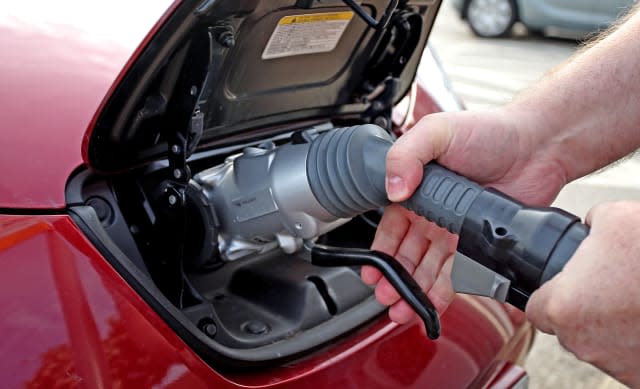Just one in six councils have on-street EV charging, says AA study

Just one in six English councils have installed on-street electric car charging points in residential areas, according to an investigation by the AA.
With calls to ban the sale of new petrol and diesel cars and vans from 2030, charging provision has been pushed to the forefront. A third of households in England have no dedicated off-street parking provisions, so would require on-street charging if they made the switch to an EV.
In response, the AA asked councils in England what on-street charging infrastructure they already had, as well as if they had any plans for future installations. A total of 316 authorities – from a total of 353 – replied.
Roads authorities such as Hampshire County Council and Lincolnshire County Council responded by saying that it was down to districts within their county to install on-street chargers, while these organisations then cited that it was the larger county council’s job to implement the technology instead.
In contrast, at least 32 councils – including Durham, Essex, Plymouth and Chesterfield – said that they will be installing their first on-street chargers before the end of 2021. However, 47 councils ‘explicitly’ said that they had ‘no plans’ or ‘none planned’ to install chargers, with councils such as Barnsley, Bracknell and Middlesborough admitting this.
Edmund King, president of the AA, said: “A perceived lack of charging points continues to be one of the top three reasons why drivers are hesitant to switch to electric cars. This isn’t helped by councils squabbling amongst themselves over who should be doing the legwork.
“While many councils already have charge points, most of these are either in town centre car parks, or park and ride locations. While this is fine and must continue to grow, we still need to provide confidence to drivers without dedicated off-street parking that they can charge at home.”
It was also discovered that some councils are using cash obtained from grants available to councils by the Office for Low Emissions Vehicles (OLEV) to specifically install on-street chargers.
The On-Street Residential Charging Scheme (ORCS) grant gives councils the ability to seek up to 75 per cent funding to install charging infrastructure in residential areas where drivers have little or no access to off-street parking.
However, councils have been found to be applying for the grant with the intention of installing charging points in town centre car parks instead. Councils such as Barnsley, East Riding of Yorkshire and Warwickshire said that they had been using the grant for this purpose.
King added: “The ORCS grant is specifically designed to help local authorities overcome the challenge of on-street residential parking and charging, however, too many councils see this as a way of bolstering their town centre charging infrastructure. This goes against the spirit of the grant.
“If the government plans to adopt the phase out of new petrol and diesel cars and vans from 2030, then more focus and support is needed to boost local EV infrastructure.
“It had been assumed that some drivers without home charging would be able to charge EVs at their place of work and help reduce the need for more extensive on-street charging points, but should the current trend for home working continue, then there may be even more pressure to install more residential charging stations.”


